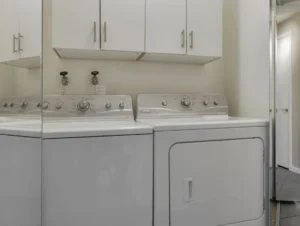Weighing Whether To Accept Bitcoin As A Rent Payment
With cryptocurrencies like bitcoin making news lately, you might be questioning if you should invest in bitcoin. Or, you might even be wondering, “Should I accept bitcoin for rent?” There’s no easy answer, as there are benefits and risks involved. Here’s what to consider if a tenant offers you bitcoin as rent payment.
Why Should a Landlord Accept Bitcoin? 
Perhaps the main reason to accept bitcoin as payment is that it lets landlords obtain some bitcoin without having to put up cash. Since bitcoin increased by 2,166.66 percent in 2017, a few months of bitcoin payments could turn into enough cash to purchase a new rental property if bitcoin does well.
If you’re willing to accept the risks of bitcoin transactions, you could see significant rewards. Small businesses in many niches — from pizza to flowers — have experimented with bitcoin payments. In a crowded rental market, this can be one way to stand out from competitors. You could increase interest in open listings — and fill a vacant rental — by advertising that you accept bitcoin payments.
Bitcoin is intended to be purchased and held. If you’re looking to make money, you’ll need to hold onto bitcoin, not cash out to pay the mortgage.
Why Should a Landlord Decline Bitcoin Payments?
Conventional wisdom is to accept rental payments in the currency you use to pay for things. While an international renter may ask to pay you in euros, you can’t take the euros to your utility provider and pay the bills in euros. The same holds true for bitcoin: You can’t pay someone else in bitcoin, but you can cash a rent check and pay your expenses in dollars.
For both euros and bitcoin, values fluctuate. Your expenses don’t fluctuate wildly monthly, so it is dangerous to get into a situation where you are receiving different amounts of rent each month because you accept alternate currencies.
Bitcoin is not liquid. It can take up to 10 days for you to cash out bitcoin paid by a renter. Many landlords need to use rental payments for their mortgage and cannot afford a 10-day wait.
Bitcoin is riskier than cash for other reasons, too. Since it exists only on computers, it is vulnerable to hacking. Bitcoin is made to be untraceable, so there’s no hope of recovering stolen bitcoin. The untraceable nature of bitcoin can create problems if you and a renter get into a dispute about payments. Rather than a check or electronic bank transfer — which is made out to you and provides clear proof you were paid — bitcoin receipts contain no such identification. If you are trying to evict a tenant and he or she produces a bitcoin receipt, will the court be able to prove whether or not the tenant paid you? The answer is no, and your eviction could be delayed as a result.
Ultimately, the decision of accepting bitcoin is up to you. If you are financially comfortable and can afford to experiment with bitcoin payments, give it a try. Remember, cryptocurrency is not regulated, and you could lose everything. Stay up to date with landlord trends and get discounts on products and services by becoming an American Apartment Owners Association member today.
Disclaimer: All content provided here-in is subject to AAOA’s Terms of Use.













 Accessibility
Accessibility